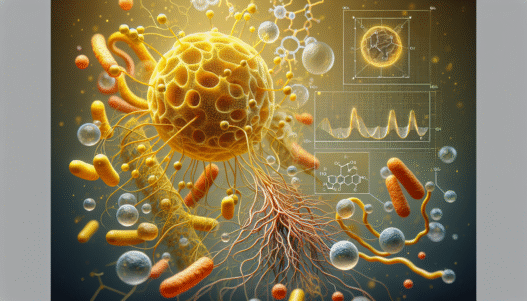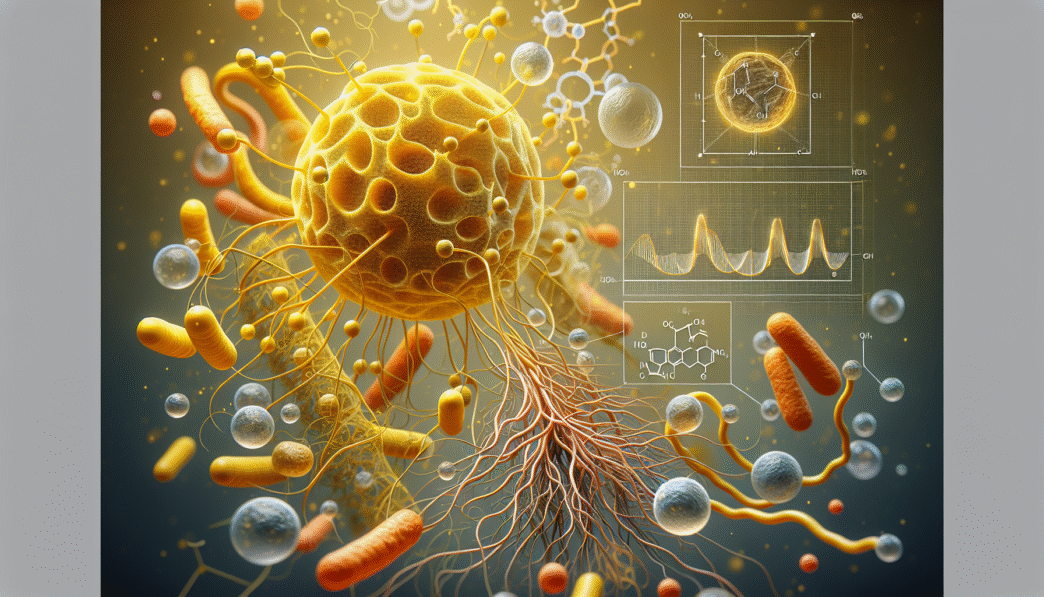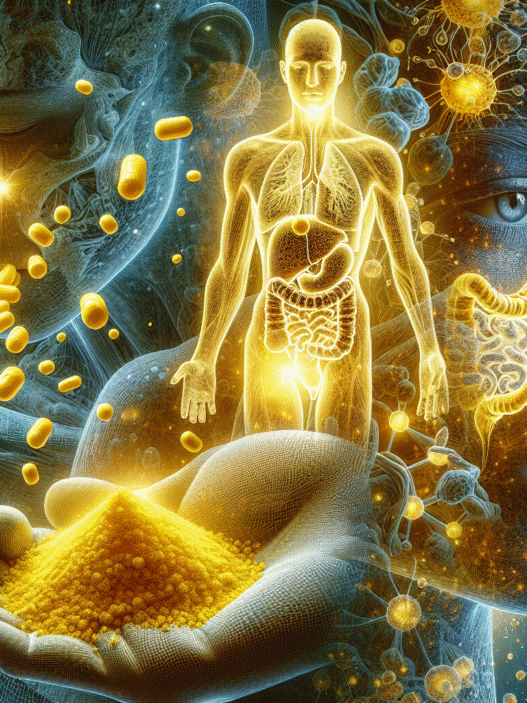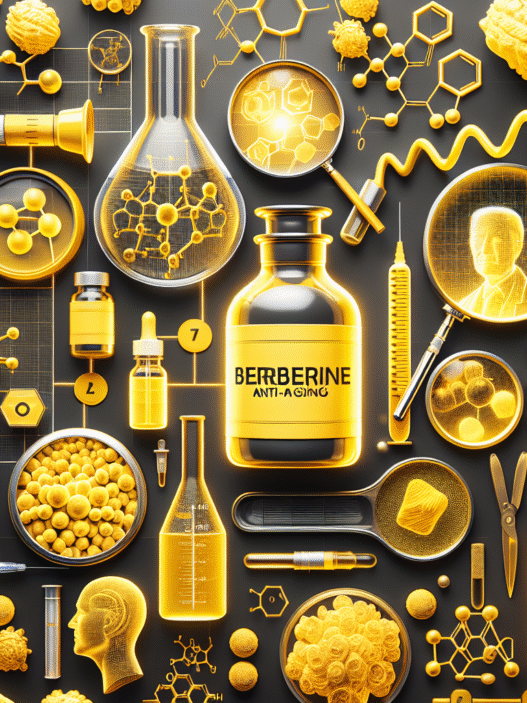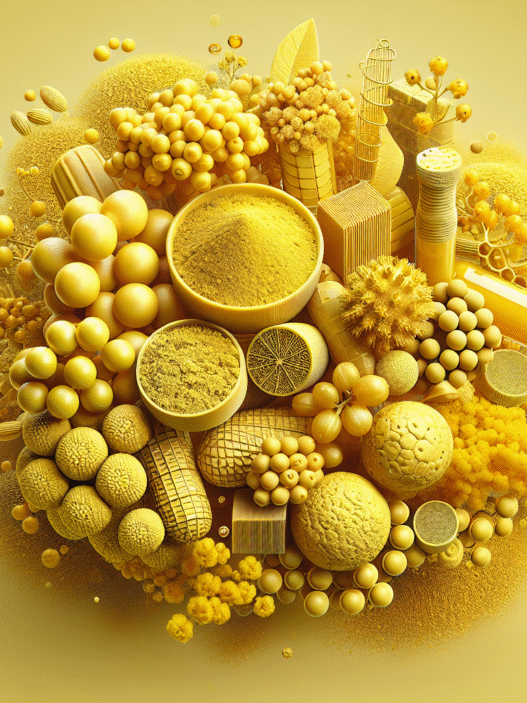Berberine and Autophagy Mechanisms
Understanding Autophagy Processes
Autophagy is a fundamental cellular process that helps maintain cellular health by degrading and recycling damaged organelles and misfolded proteins. This mechanism serves as a response to stress stimuli in both physiological and pathological conditions. Studies indicate that practices such as intermittent fasting or calorie restriction can trigger adaptive autophagy, which has been linked to increased longevity in eukaryotic cells.
There are three primary types of autophagic processes in eukaryotic cells:
- Macroautophagy: The most common form, which entails forming autophagosomes that subsequently fuse with lysosomes for degradation.
- Microautophagy: A mechanism involving the direct engulfment of cytoplasmic material by lysosomes.
- Chaperone-mediated autophagy: This type specifically targets proteins for degradation with the aid of chaperone proteins.
Insulin plays a suppressive role in autophagy by activating the mTORC1 pathway, which inhibits the phosphorylation of ULK1 and diminishes FOXO1 expression. In contrast, lower energy levels activate AMPK, which can stimulate autophagy by inhibiting mTORC1 and modulating anabolic and catabolic processes (PMC). Such regulatory dynamics can influence various cellular outcomes and highlight the importance of maintaining a balance in energy metabolism.
Exploring Berberine’s Impact
Berberine has emerged as a natural compound with potential to influence autophagic processes. Research indicates that berberine can stimulate glucose uptake in cells, engaging both AMPK and p38 MAPK signaling pathways, which may enhance glucose metabolism (WebMD).
The role of berberine in activating autophagy mechanisms contributes to various health benefits, including improved metabolic health and potential protective effects against age-related diseases. For instance, studies suggest that berberine may help mitigate conditions associated with metabolic syndrome, thereby influencing overall longevity and vitality.
In summary, understanding both the mechanisms of autophagy and the role of berberine can provide insights into achieving better health outcomes. For more information on the various benefits of berberine, including its effects on gut health and metabolic processes, visit our article on berberine benefits.
Berberine’s Effects on Cancer Cells
Berberine has garnered attention in the field of cancer research due to its unique ability to influence cancer cell dynamics. This section outlines how berberine induces autophagic cell death and its broader mechanisms in cancer treatment.
Autophagic Cell Death Induction
Berberine has been shown to effectively induce autophagic cell death in specific cancer types, including hepatocellular carcinoma. Studies indicate that berberine elevates the levels of glucose-regulated protein 78 (GRP78), a key player in the autophagy process. When GRP78 levels increase, it triggers pathways that lead to cell death through autophagy. However, the induction of cell death can be inhibited when using cell death inhibitors, such as 3-methyladenine, or by interfering with autophagy-related genes like Atg5, highlighting the delicate balance in these processes (PubMed).
Overall, berberine’s ability to induce autophagic cell death presents a potential therapeutic avenue for treating certain cancers, as autophagy can serve as a mechanism to eliminate damaged or dysfunctional cells.
Mechanisms in Cancer Treatment
The anticancer effects of berberine extend beyond autophagy. Research has indicated that berberine exerts regulation of glycolipid metabolism, which plays a significant role in tumor cell behavior. By promoting apoptosis through the mitochondrial apoptosis pathway, berberine enhances the cancer-fighting capabilities of the body.
Moreover, berberine exhibits various beneficial properties, such as anti-inflammatory, antioxidant, and anti-apoptotic effects. It can inhibit tumor-specific cytotoxicity, positioning it as a potential adjunct treatment in therapeutic protocols for cancer management (WebMD).
In summary, berberine and its influence on autophagy alongside other biochemical pathways showcase its promise as a multifaceted approach in cancer treatment. The potential applications of berberine could extend not only to cancer treatment but also to broader implications in health and wellness. For more insights into the benefits of berberine, including its effects on berberine and blood pressure and berberine and gut health, explore other areas of research on this powerful compound.
Berberine’s Interaction with Medications
Understanding the interactions between berberine and various medications is essential for individuals considering its incorporation into their health regimen. Berberine can significantly influence how the body metabolizes certain drugs, impacting their effectiveness and safety.
Implications for Drug Metabolism
Berberine can alter the metabolism of medications in several ways. It has been known to affect the cytochrome P450 enzyme system, specifically with Cytochrome P450 3A4, which is crucial for the breakdown of many drugs. This interference can lead to either increased effects or side effects of those medications. For instance, if berberine decreases the rate at which the liver metabolizes a specific drug, it could potentially enhance the drug’s effects, leading to adverse reactions.
| Medication Category | Potential Impact of Berberine |
|---|---|
| Anticoagulants/Antiplatelet | Increased risk of bleeding |
| Sedatives | Enhanced sedative effects |
| Diabetes Medications | Potentially lower blood sugar levels |
| Antihypertensives | Possible decrease in blood pressure |
Monitoring with Drug Combinations
When berberine is taken alongside other medications, close monitoring is crucial. For those on diabetes medications, berberine may cause blood sugar levels to drop significantly, leading to hypoglycemia. Therefore, frequent monitoring of blood sugar levels is advisable to avoid complications. Similarly, individuals taking antihypertensive drugs should be cautious, as the combination with berberine might result in excessively low blood pressure.
In conclusion, awareness of how berberine benefits may interact with various medications is vital for ensuring safe and effective use. For individuals exploring berberine supplements, discussing any potential interactions with healthcare providers can help mitigate risks while enabling them to harness the advantages of berberine in their wellness journey.
Berberine’s Metabolic Effects
Exploring the effects of berberine on metabolism reveals its significant roles in regulating glucose levels and inhibiting gluconeogenesis, making it a valuable compound for those focused on metabolic health and anti-aging.
Regulation of Glucose Metabolism
Berberine has demonstrated a potent ability to stimulate glucose uptake, which can greatly benefit individuals looking to manage their blood sugar. Research indicates that berberine engages both the AMPK and p38 MAPK pathways to enhance glucose metabolism in muscle cells, specifically in L6 myotubes WebMD. This stimulation of glucose uptake aids in lowering blood sugar levels and supporting overall energy metabolism.
Here is a summary of berberine’s effects on glucose metabolism:
| Mechanism | Effect |
|---|---|
| AMPK Activation | Enhances glucose uptake |
| p38 MAPK Pathway | Supports glucose metabolism |
Inhibition of Gluconeogenesis
In addition to regulating glucose uptake, berberine is known to inhibit hepatic gluconeogenesis, which is the process of creating glucose from non-carbohydrate sources. Research highlights that berberine achieves this by inhibiting mitochondrial respiratory chain complex I. This leads to a reduction in ATP synthesis, an enhancement of glycolysis, and a promotion of glucose metabolism that operates independently of AMPK activation (PMC).
The following table outlines the effects of berberine on gluconeogenesis:
| Mechanism | Outcome |
|---|---|
| Inhibition of Complex I | Suppresses ATP synthesis |
| Enhancement of Glycolysis | Promotes glucose utilization |
Additionally, studies have shown that berberine can improve mitochondrial function and biosynthesis. This is particularly beneficial as it helps mitigate the harmful effects associated with diets high in fat and contributes to better energy utilization PMC.
Overall, understanding the mechanisms through which berberine affects glucose metabolism and gluconeogenesis is essential for those interested in incorporating it as part of a holistic approach to health and longevity. For more information on the broader impacts of berberine, explore our article on berberine benefits.
Berberine’s Therapeutic Potential
Role in Vascular Diseases
Berberine is emerging as a promising agent in the treatment of vascular diseases, demonstrating anti-inflammatory, antioxidant, and antiapoptotic properties. These effects are achieved through the regulation of multiple signaling pathways, including AMP-activated protein kinase (AMPK) and nuclear factor κB (NF-κB) among others. Research indicates that berberine has superior therapeutic effects on conditions like atherosclerosis; however, its oral bioavailability is notably low, reported between 0.37% and 0.68% in both rats and humans.
| Parameter | Value |
|---|---|
| Oral Bioavailability (in rats) | 0.37% |
| Oral Bioavailability (in humans) | 0.68% |
To enhance the effectiveness of berberine in clinical settings, strategies such as converting it into salt compounds or modifying its chemical structure may be explored. This could potentially lead to improved outcomes in managing various vascular diseases, making berberine a candidate for alternative therapeutic strategies in this area.
Protective Effects on Cardiac Function
Berberine exhibits notable protective effects against ischemia-reperfusion (IR) injury, which is critical for heart health. These protective mechanisms are linked to enhanced recovery of cardiac function post-myocardial infarction and a reduction in infarct size. This is primarily facilitated by the regulation of the SIRT-1 signaling pathway, which plays a vital role in cellular protection.
Additionally, berberine has shown potential in mitigating oxidative stress and inflammation, both of which are detrimental to cardiac tissues during IR injury. These findings suggest that berberine could be an effective treatment option for conditions such as myocardial ischemia, potentially improving patient outcomes and cardiac health.
For more insights on the benefits of berberine, including its impact on berberine and kidney function and berberine and blood pressure, consider exploring additional resources.
Berberine: Traditional Use and Extraction
Historical Medicinal Practices
Berberine has a rich history of traditional use, particularly in Ayurvedic and Chinese medicine, spanning over 3000 years. It has been utilized for treating various conditions, such as inflammatory disorders, skin diseases, digestive issues, respiratory ailments, and microbial infections. Its diverse applications have highlighted its significance in holistic wellness. The therapeutic effects of berberine have made it a staple in ancient medicinal practices, contributing to its popularity in modern functional medicine.
Methods for Isolating Berberine
Berberine is primarily derived from the genus Berberis, with species such as Berberis vulgaris containing approximately 5% berberine along with other alkaloids. Various extraction methods are utilized to isolate this valuable compound from plants:
| Extraction Method | Description |
|---|---|
| Maceration | Soaking plant material in a solvent to extract active compounds. |
| Soxhlet Extraction | Using a Soxhlet apparatus for continuous solvent extraction. |
| Continuous Extraction | Utilizing cold or hot conditions with solvents like methanol or ethanol. |
| Ultrasonically Assisted Extraction | Using ultrasound waves to enhance extraction efficiency. |
| Microwave-Assisted Extraction | Applying microwave energy to facilitate extraction. |
| Ultrahigh Pressure Extraction | Using high pressure to improve the yield of extracted compounds. |
| Supercritical Fluid Extraction | Employing supercritical fluids for efficient isolation. |
These methods allow for effective extraction, ensuring the therapeutic benefits of berberine are preserved and made available for supplements and holistic wellness applications. For further insights into berberine’s advantages, including its role in berberine and gut health and berberine and blood pressure, exploring various aspects of its properties is essential.










